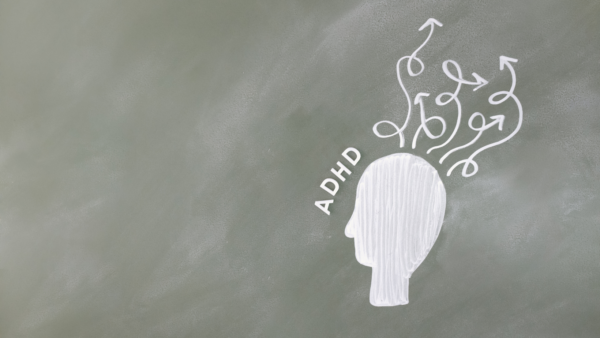Attention deficit hyperactivity disorder (ADHD) and schizophrenia are both psychiatric disorders, but they have very different symptoms and treatment options. ADHD symptoms typically affect a person’s attention span and decision-making abilities, while schizophrenia may cause abnormal behavior and changes in a person’s thinking patterns. Keep reading to learn more about the difference between attention deficit hyperactivity disorder and schizophrenia.
If you or a loved one struggles with Schizophrenia — Call Alta Loma Transformational Services today 866-457-3843
Our team will diagnose, treat & work with you or your loved one
Symptoms of Attention Deficit Hyperactivity Disorder
Attention deficit hyperactivity disorder is typically characterized by a pattern of symptoms that may include inattention, impulsivity and/or hyperactivity. Healthcare providers use the guidelines in the American Psychiatric Association’s Diagnostic and Statistical Manual, to help diagnose ADHD but here are some symptoms to watch out for.
Inattention
Inattention refers to difficulty staying organized and maintaining focus. Someone with attention deficit hyperactivity disorder may display the following behaviors when struggling with inattention-related ADHD symptoms:
- Making careless mistakes at work or at school
- Having trouble staying organized
- Getting distracted by activities that aren’t related to what they’re supposed to be working on (e.g., playing video games instead of doing homework)
- Having difficulty completing work tasks, school assignments or household chores
- Avoiding homework, difficult projects and other tasks requiring a great deal of mental focus
Impulsivity and Hyperactivity
Impulsivity is associated with a lack of self-control, which may cause someone with attention deficit hyperactivity disorder to interrupt others frequently or make quick decisions without stopping to think about the potential consequences.
Hyperactivity is characterized by constant movement, especially when the individual is expected to sit still and pay attention. People who have attention deficit hyperactivity disorder may fidget excessively, talk out of turn or burn off excess energy by tapping their feet or rapping on hard surfaces with their hands.
Individuals with attention deficit hyperactivity disorder may also display the following impulsivity/hyperactivity-related ADHD symptoms:
- Squirming around when they’re supposed to be sitting quietly
- Standing up and walking around the room during class
- Running around when it’s not appropriate to do so
- Finishing other people’s sentences or talking out of turn
- Interrupting other people’s conversations or activities
- Talking excessively

Symptoms of Schizophrenia
Like other psychiatric disorders, schizophrenia produces a wide range of negative and positive symptoms, meaning not everyone with schizophrenia has the same experience with the condition. These are some of the most common schizophrenia symptoms:
Abnormal Behavioral symptoms
An adult with a schizophrenia diagnosis may display abnormal motor behavior, including excessive movement, inappropriate posture and refusal to follow instructions. In some people with schizophrenia, abnormal motor behavior manifests as a set of childlike behaviors; in others, it causes high levels of agitation.
Hallucinations
Schizophrenia is one of the psychotic disorders known to cause hallucinations, which means someone with the disorder may see and hear things that aren’t really there. The hallucinations feel extremely realistic, so schizophrenia patients may become upset or agitated when someone tells them they’re seeing or hearing things that don’t exist.
Delusions
According to the Mayo Clinic, delusions are beliefs that aren’t rooted in reality. For example, someone who’s developing schizophrenia may believe they’re being persecuted by the government or they have some exceptional ability that may save loved ones from certain death.
Negative Symptoms
The term “negative symptoms” refers to impairment of a person’s ability to function normally. Someone with schizophrenia symptoms may speak in a monotone instead of varying their pitch based on the situation at hand, for example. Poor hygiene, lack of eye contact and limited facial expressions are also signs that someone with schizophrenia isn’t functioning as well as they should be.
Disorganized Thinking
Disorganized thinking interferes with a person’s ability to communicate with others. Some people who develop schizophrenia display a symptom known as “word salad.” This is when they string together several random phrases that have nothing to do with each other. Schizophrenic patients may also provide completely irrelevant information when someone asks them questions.

Risk Factors for Psychiatric Disorders Like ADHD and Schizophrenia
A few factors make it more likely that someone will receive an ADHD prior juvenile diagnoses or schizophrenia diagnosis at some point in their lives.
ADHD Risk Factors
An ADHD diagnosis is much more common in people who have blood relatives with ADHD or another mental illness. Blood relatives include siblings and parents. Smoking and drinking alcohol during pregnancy are also linked to an increased risk of ADHD in children. Additional risk factors include premature birth, low birth weight and exposure to lead and other environmental toxins. Environmental toxins can interfere with brain development, increasing the risk of ADHD and other psychiatric disorders.
Schizophrenia Risk Factors
ADHD and schizophrenia have many of the same risk factors in common. For example, a family history of schizophrenia increases the likelihood of a schizophrenia diagnosis. Pregnancy and birth complications, exposure to toxins and malnutrition can all interfere with brain development, increasing the risk of schizophrenia. Another potential risk factor is the use of mind-altering substances during adolescence and the early years of adulthood.
Is ADHD linked to Schizophrenia?
ADHD and schizophrenia are two distinct mental health conditions, and while they may share some similarities, they are not directly linked. ADHD is a neurodevelopmental disorder. Schizophrenia, on the other hand, is a chronic mental disorder.
While ADHD and schizophrenia are separate mental disorders, research has shown that there may be some overlap in terms of genetic factors and shared symptoms. Some studies have suggested that individuals with ADHD may have a slightly increased risk of developing schizophrenia and bipolar disorder later in life compared to the general population. However, it’s important to note that the overall risk remains relatively low, and most people with ADHD do not develop schizophrenia.
Treatment Options for ADHD and Schizophrenia
To control the symptoms of ADHD or schizophrenia, it’s extremely important to find the right treatment regimen. Because these conditions have different causes and symptoms, they have different treatment options.

Treatment for ADHD
Behavior therapy and medication are the main treatment options available to ADHD subjects. Behavior therapy helps reduce some of the behaviors that can cause people with ADHD to display signs of impulsivity or hyperactivity. For children with ADHD, behavior therapy may also include parental training, which teaches parents how to help children manage their symptoms. Stimulant medication is another option. Stimulants help people with ADHD control the symptoms that have been interfering with work, school and personal relationships. Nonstimulant medications are also available, but they’re used less often than stimulants.
Treatment for Schizophrenia
Schizophrenia research shows that comprehensive treatment is necessary to relieve schizophrenia symptoms and prevent the condition from interfering with normal activities. For most patients, medications are the best treatment, as they can suppress psychotic symptoms and help someone with schizophrenia function normally. People with schizophrenia may also benefit from social skills training, individual therapy, family therapy and/or vocational rehabilitation.
Get Help for Schizophrenia and ADHD at Alta Loma
If you’ve tried other treatment programs without success, contact Alta Loma Transformational Services. We specialize in treating co-occurring mental health disorders in men who want to improve their psychological stability. Call 866-457-3843 to learn more about our transformational programs.



